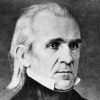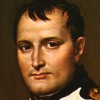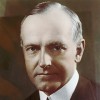I attended to some of the business on my table to-day. Many matters of minor importance and of detail remain on my table to be attended to. The public have no idea of the constant accumulation of business requiring the President’s attention. No President who performs his duties faithfully and conscientiously can have any leisure. If he entrusts the details and smaller matters to subordinates constant errors will occur. I prefer to supervise the whole operations of the government myself rather than entrust the public business to subordinates, and this makes my duties very great.
James K. Polk (1795-1849) American lawyer, politician, US President (1845-1849)
Diary (1848-12-29)
(Source)
Quotations about:
delegation
Note not all quotations have been tagged, so Search may find additional quotes on this topic.
In the discharge of the duties of the office there is one rule of action more important than all others. It consists in never doing anything that someone else can do for you. Like many other good rules, it is proven by its exceptions. But it indicates a course that should be very strictly followed in order to prevent being so entirely to trifling details that there will be little opportunity to give the necessary consideration to policies of larger importance.
Calvin Coolidge (1872-1933) American lawyer, politician, US President (1925-29)
The Autobiography of Calvin Coolidge (1929)
(Source)
Often given as "One rule of action more important than all others consists in never doing anything that someone else can do for you" or "Don't do anything yourself that someone else can do for you."
Let the Care of one’s business be committed but to one Person; for otherwise, besides Disagreement which may arise when Account is taken, everyone’s Answer is, That he thought others had done it.
Thomas Fuller (1654-1734) English physician, preacher, aphorist, writer
Introductio ad Prudentiam, #1073 (1725)
(Source)
I know that I have never been so well pleased as when I could shift power from my own, on the shoulders of others; nor have I ever been able to conceive how any rational being could propose happiness to himself from the exercise of power over others.
Thomas Jefferson (1743-1826) American political philosopher, polymath, statesman, US President (1801-09)
Letter to Destutt de Tracy (26 Jan 1811)
(Source)
Often just the second clause is quoted: "I have never been able to conceive how ..."





